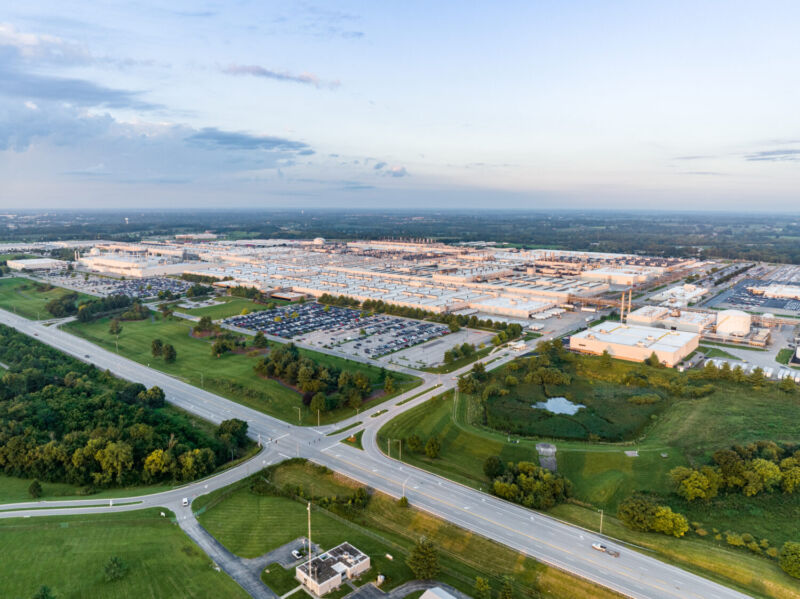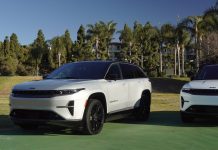The automaker will build a three-row EV in the US in 2025.

Toyota’s factory in Georgetown, Kentucky, is getting an additional $1.3 billion investment, the automaker says. Last year it announced that the Georgetown plant would build its forthcoming three-row electric SUV; now it says it’s also adding a battery pack assembly line, among other improvements.
“Today’s announcement reflects our commitment to vehicle electrification and further reinvesting in our US operations,” said Kerry Creech, president of Toyota Kentucky. “Generations of our team members helped prepare for this opportunity, and we will continue leading the charge into the future by remaining true to who we are as a company and putting our people first for generations to come.”
Toyota has lagged behind industry rivals in its electrification plans; here in the US, its sole battery EV offering is the stolid bZ4x electric crossover. The company’s slow-rolling of EVs led to a change of leadership in 2023 as Akio Toyoda was replaced as CEO by former Lexus head Koji Sato.
Following Koji’s appointment as CEO, Toyota published a roadmap laying out how it plans to sell 3.5 million EVs by 2030, which depends upon a range of different battery chemistries, including cheaper lithium iron phosphate cells for some applications, faster-charging lithium-ion chemistries for others, and a relative handful of cars powered by solid-state batteries, assuming that technology pans out.
For his part, Toyoda—who remains as company chairman—thinks that EVs will only reach 30 percent market share.
Ironically, Toyota’s continued reliance on hybrid EVs to meet fleet emissions targets is now being copied by automakers like Ford and General Motors, who have found their EV ambitions did not line up with car buyers’ expectations in terms of affordability or size.
Building its three-row EV in Kentucky (and the batteries in North Carolina) should mean the forthcoming Toyota will be eligible for the IRS clean vehicle tax credit when it goes into production next year.




